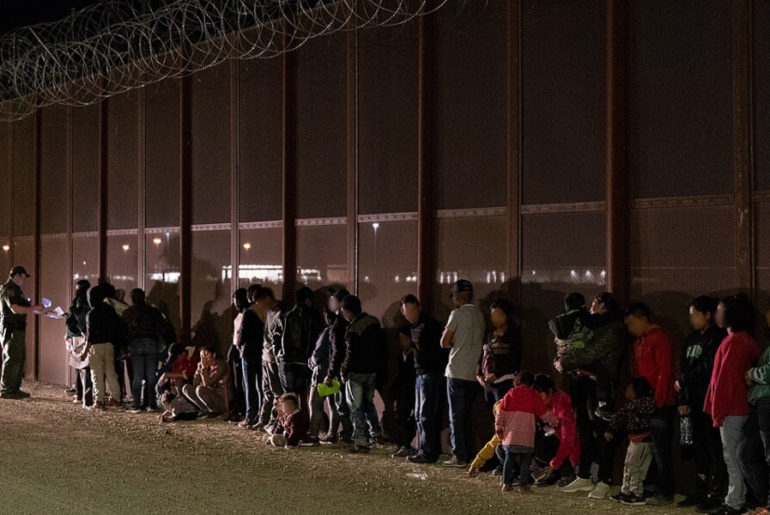The Transactional Records Access Clearinghouse at Syracuse University (TRAC) published a report that reveals how, between March 31, 2015, and April 30, 2019, the number of immigrants detained by ICE who have no criminal conviction on record has more than tripled, growing from 9,999 to 31,778. For comparison, the number of immigrants detained by ICE who have a criminal record over the same period increased by 12%, growing from 15,781 to 17,618. Accordingly, the percentage of ICE detainees without criminal convictions has grown from 39% of all detainees to 64% of all detainees. In other words, there’s been a massive increase in detentions by ICE, and over 90% of the new detainees, on average, have no criminal conviction record.
This data closely correlates with the immigration policy called “zero tolerance,” implemented by the Trump administration. In June 2019 on his twitter, the president mentioned: “Next week ICE will begin the process of removing the millions of illegal aliens who have illicitly found their way into the United States. They will be removed as fast as they come in.”
The report, which analyzes data over approximately 4 years, notes that ICE arrested 49,396 immigrants in detention centers throughout the country during that period. Further corroborating this data, TRAC also shows that individual detention centers have a high percentage of detainees without criminal conviction, for example:
-In 15 detention centers, between 90.1% and 99.1% of detainees have no criminal convictions. For example, the South Texas Farm Residential Center has 878 total detainees and only 8 with criminal conviction.
-In 13 detention centers, between 81.8% and 89.3% of. detainees have no criminal convictions. For example, the Brooks County Jail (contract) has 159 total detainees and only 17 with criminal conviction.
-In 12 detention centers, between 70.4% and 79.2% of detainees have no criminal convictions. For example, Florence SPC has 414 total detainees and only 86 with criminal conviction.
The Immigration and Customs Enforcement Detention data show that the largest number of immigrants are detained in Texas (14,481), followed by Louisiana (4,415), Arizona (4,405) and California (4,353). Of these, the counties with the most detainees are Pinal County, AZ (4,038), Frio County, TX (2,660), Stewart County, GA (1,816) and Montgomery County, TX (1,788).
According to the records on gender, there are 42,177 males, 7,214 females and 5 unknown genders in ICE detention. Regarding citizenship, the majority is from Mexico (9,167), followed by Honduras (8,764), Guatemala (7,311), El Salvador (5,382) and Cuba (4,366).
The amount of time these people have lived in the U.S. is varied, with most having lived in the U.S. more than one year (29,004), followed by not known (10,378), 20 years or more (1,933), between 10 and 15 years (1,557) and between 15 and 20 years (1,411). The specific months when the highest number of people were detained by ICE were April 2019 (19,185) and March 2019 (10,094). The number of new detainees nearly doubled from February to March 2019, with 5,503 detainees in February.
The Most Serious Criminal Conviction (MSCC) documents the “most serious offense the individual was convicted for.” For ICE, the MSCC of their detainees are: Illegal Entry (3,088), Driving under influence Liquor (1,905), Assault (1,058) and Traffic Offense (948). Most detainees have a Level 3 Crime (9,447) that offenses are misdemeanors, including petty and other minor violations of the law. There is no information on the ages of detainees because ICE is withholding this information.
TRAC noted that the label of “criminal convictions” is misleading since it can cover many minor, nonviolent offenses like traffic citations and under immigration law and practice, immigrant detention is meant to be considered as a civil form of custody, as distinct from incarceration. There is uncertainty about whether ICE is considering this when detaining immigrants. It is also unknown if being detained without criminal conviction will negatively affect the process of applying for asylum and / or residence in the US.

